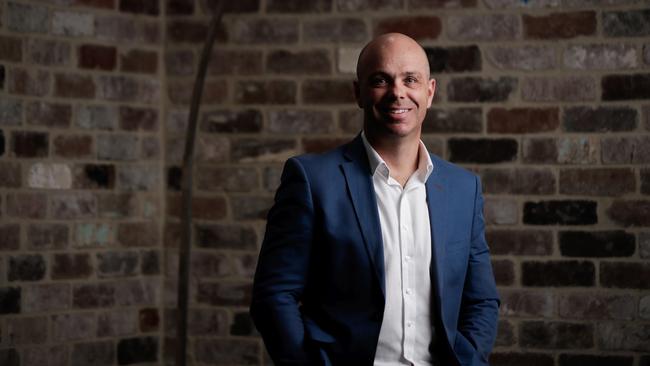Just 3pc of tech graduates are job-ready, Australian Information Industry Association survey finds
Only 3 per cent of Australian tech companies believe graduates are job-ready after finishing university, with many taking up to 12 months of training to reach required productivity levels.

Only 3 per cent of Australian tech companies believe graduates are job-ready after finishing university, with many taking up to 12 months of training to reach required productivity levels.
The lack of readiness is tightening the overall jobs market, forcing smaller firms that can’t afford to train staff without experience to fork out hefty sums while competing against major companies for highly-skilled workers.
The state of the market amid Australia’s current skills and labour shortage is severely limiting the ability for Australian tech start-ups and small firms to be innovative, Australian Information Industry Association chief executive Simon Bush said.
“Feedback from our members is that on average it takes between six to 12 months to train a graduate and while larger companies can take on that overhead and the cost of training, for smaller companies it is a real handbrake on productivity,” he said.

The 3 per cent job-ready rate, which arrived from the AIIA’s fourth Digital State of the Nation survey, had fallen from 5 per cent in the previous year.
Across the nation, cybersecurity positions are the most in demand in the tech space followed by artificial intelligence roles.
To meet demand, many tech companies had moved away from hiring people university degrees and were actively hiring workers who had recently completed micro-courses and vocational training courses, the AIIA found.
Some of the training provided in short courses was similar to on-the-job learning, and easing the pressures on companies to train staff, Mr Bush said.
“We’re finding that our members really are looking to hire people from non-traditional areas, in other words, non-ICT areas in order to meet demand,” he said. “And in relation to cyber security, micro courses are the what the market wants.”
The local tech market will not be as active as previous years over the next 12 months, with 26 per cent of companies unsure if they would actively hire this year, the survey found.
The pulling back on expanding staff headcounts may drive some pressure down on graduate salaries, which The Australian revealed last year had been as high as $147,000 to $350,000 at the top-paying firms.
“What’s happening with consumers, and cost of living, inflation and interest rates there, companies are not looking to grow their business as much as they perhaps were going to last year in terms of hiring people,” Mr Bush said.
The roles which demand a premium are cybersecurity and AI, with senior staff in those fields in more demand than ever before. “If you are an AI expert in a technology company, right now you are a rock star,” Mr Bush said.

Of those looking to hire, the intention to bring on local workers had grown to 69 per cent, up 5 per cent from the previous years when borders were closed.
The major factor driving companies toward hiring overseas staff was the skills shortage. Labour costs were another factor, cited by 17 per cent of staff, down from 50 per cent the previous year.







To join the conversation, please log in. Don't have an account? Register
Join the conversation, you are commenting as Logout